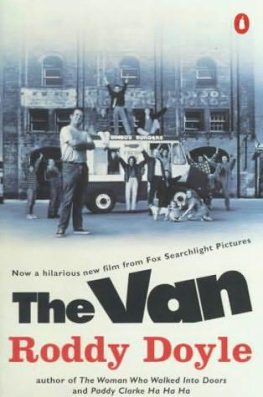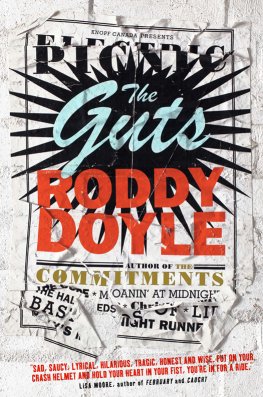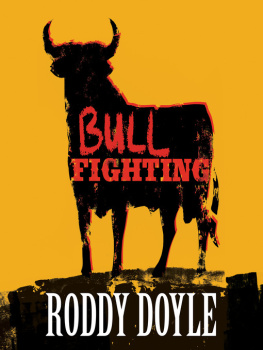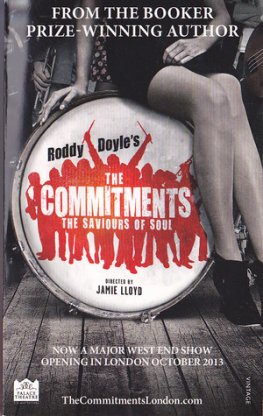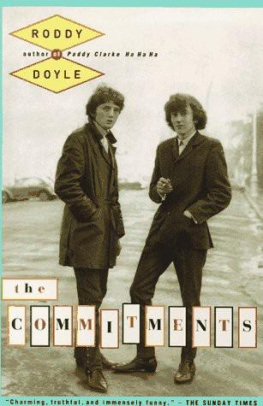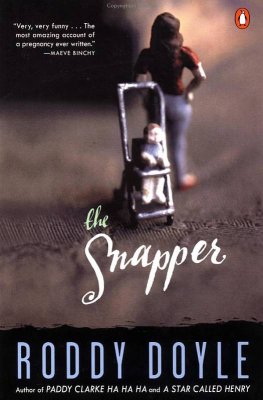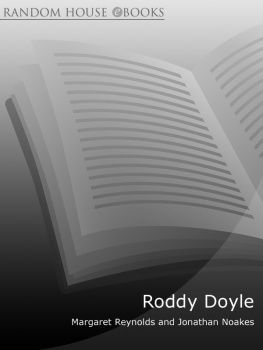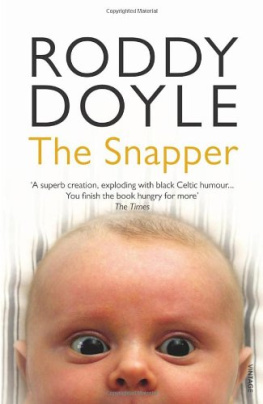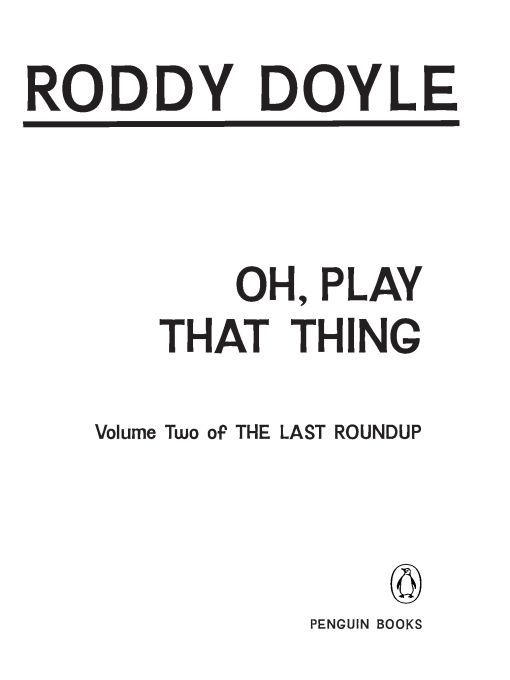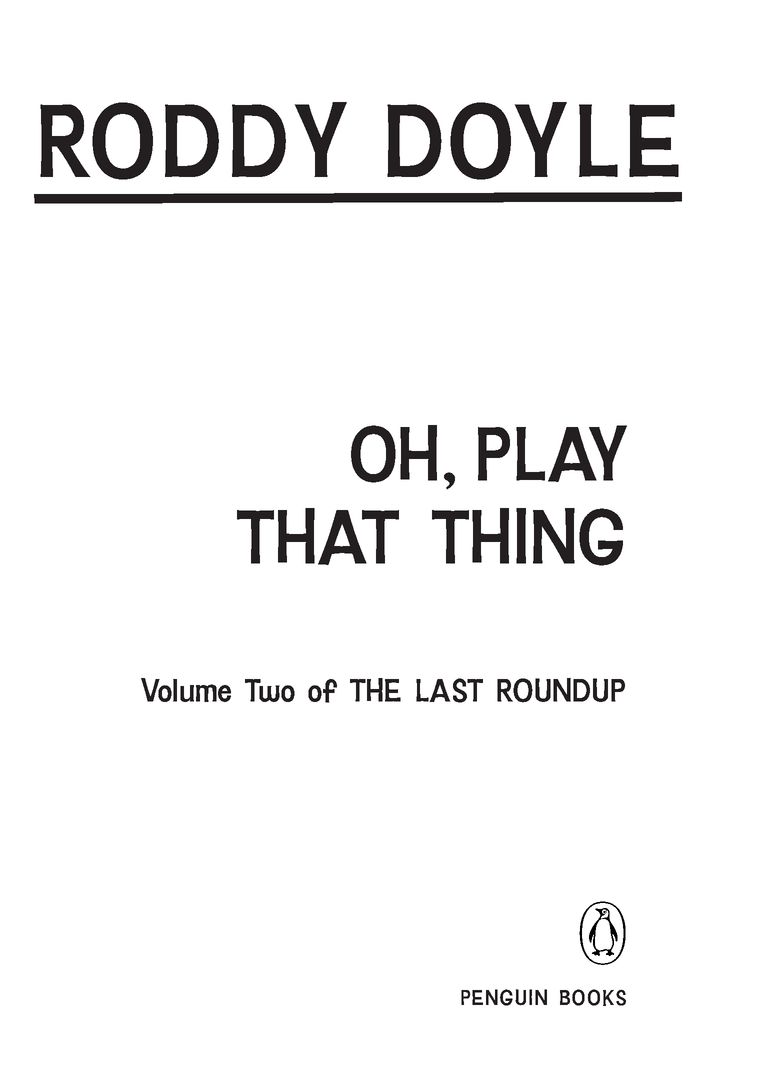Table of Contents
Praise for Oh, Play That Thing
Oh, Play That Thing chronicles the birth of the American century, from the shores of Ellis Island through the Jazz Age and into the Great Depression.... Doyles characters are too livelytoo full-blooded and lustyto be mere ciphers, and the Booker Prize-winning author gets the feel of thingsjazz, regret, memoryright.
Boston Phoenix
Vibrant, punchy images come in quick succession, evoking city streets teeming with life and possibility like the gritty poetics of John Dos Passos.
Philadelphia Weekly
Doyle can make music come alive like no one else. His prose will bop and bang its head to punk or bump and grind to the blues.... [And he] understands that becoming an Americanwhether youre black or Irishis a game of improvisation, just like jazz.
New York Daily News
A sprawling tale steeped in the grit, lawlessness and hardships of the early 1900s... it all unfolds in Doyles bold, vivid writing that, at its best, echoes the adventure and rhythm of jazz.... By the end, he has us hooked, racing for the finish to a book we wish wouldnt end and eager for the final installment.
Rocky Mountain News
Roddy Doyle is an uncommonly gifted writer.
St. Louis Post-Dispatch
A writer of muscular, quicksilver prose... Doyle is arguably the finest fiction writer to emerge from Ireland since World War II.
The Denver Post
ABOUT THE AUTHOR
Roddy Doyle is an internationally bestselling writer. His first three novelsThe Commitments, The Snapper, and 1991 Booker Prize finalist The Vanare available both singly and in one volume as The Barrytown Trilogy, published by Penguin. He is also the author of the novels Paddy Clarke Ha Ha Ha (1993 Booker prize winner), The Woman Who Walked Into Doors, A Star Called Henry, and Oh, Play That Thing, and a nonfiction book about his parents, Rory & Ita. Doyle has also written for the stage and the screen: the plays Brownbread, War, Guess Whos Coming for the Dinner, and The Woman Who Walked Into Doors; the film adaptations of The Commitments (as cowriter), The Snapper, and The Van; When Brendan Met Trudy (an original screenplay); the four-part television series Family for the BBC; and the television play Hell for Leather. Roddy Doyle has also written the childrens books The Giggler Treatment, Rover Saves Christmas, and The Meanwhile Adventures and contributed to a variety of publications including The New Yorker magazine, the anthology Speaking with the Angel (edited by Nick Hornby), and the serial novel Yeats Is Dead! (edited by Joseph OConner). He lives in Dublin.
To request Penguin Readers Guides by mail
(while supplies last), please call (800) 778-6425
or e-mail reading@us.penguingroup.com.
To access Penguin Readers Guides online,
visit our Web site at www.penguin.com.
This book is dedicated to
Stephen Byrne
One never knows, do one?
Fats Waller
PART ONE
I could bury myself in New York. I could see that from the boat as it went under the Statue of Liberty on a cold dawn that grew quickly behind me and shoved the fog off the slate-coloured water. That was Manhattan, already towering over me. It made tiny things of the people around me, all gawking at the manmade cliffs, and the ranks of even higher cliffs behind them, stretching forever into America and stopping their entry. I could see the terror in their eyes.
I could stare into the eyes without fear of recognition. They werent Irish faces and it wasnt Irish muck on the hems of their greatcoats. Those coats had been dragged across Europe. They were families, three and four generations of them; the Irish travelled alone. There were the ancient women, their faces collapsed and vicious, clutching bags theyd carried across the continent, full of string and eggshells and stones from the walls of lost houses. And their husbands behind them, hidden by beards, their eyes still young and fighting. They guarded the cases and boxes at their feet. And their sons and daughters, grandsons and grand-daughters, under embroidered scarves and black caps, and younger children still, and pregnant girls with scrawny boys standing and sitting beside them, all cowed by the approaching city cliffs. Even the youngest sensed that their excitement was unwanted and stayed silent, as the Reliance sent small waves against Bedloes Island and the big stone American womansend these, the homeless, tempest-tost to meas their parents and grandparents shivered at the new world and tried to know if they were looking at its front or back. I was the only man alone, the only man not afraid of what was growing up in front of us. This was where a man could disappear, could die if he wanted to, and come back to quick, big life.
I had arrived.
But we turned from Manhattan and sailed, almost back into the night, towards the New Jersey shore. And the silence around me fell deeper as the island crept up in front of us. The last few square feet of the old, cruel world, the same name in all the languages on board as we were pulled closer and closer, isola delle lagrime, Trnen Insel, the isle of tears. Ellis Island.
Hundreds of shuffling feet trapped under the vaulted ceiling of the great hall, the air was full of the whispers of the millions whod passed through, the cries of the thousands whod been stopped and sent back. I listened for the tap of a famous leg, but I heard none. Old men tried to straighten long-crooked backs and mothers rubbed rough colour into the white cheeks of their children. Wild men ran fingers through long beards and regretted that they hadnt shaved before theyd disembarked. Jewish women caressed sons ringlets and tried to push them under hats. Fragments of new language were tried, and passed from mouth to mouth.
Yes, sir.
No, sir.
My cousin, he have a house.
I am a farmer.
Qu-eeeens.
The medical inspector stared into my eyes. I knew what he was looking for. Id been told all about it, by a lame and wheezy anarchist who was making his seventh try at landing.
They see the limp but never the brain, hed said.The fools. When they confront the fact that I am too dangerous for their country, then I will happily turn my back on it. But, until then, I commute between Southampton and their Ellis Island.
If you could afford first or second class, I told him,you wouldnt have to set foot on the island.
You think I am not aware of this? he said.I can afford it. But I wont afford it.
The inspector was looking for signs of trachoma in my eyes, and for madness behind them. He couldnt stare for longno one could; he saw nothing that was going to send me back. To my left, another inspector drew a large L on a shoulder with a brand new piece of chalk. L was for lung. I knew the signs; Id been seeing them all my life. The man with the brand new L had already given up. He collapsed and coughed out most of his remaining life. He had to be carried away. An E on the shoulder meant bad eyes, another L meant lameness. And behind those letters, other hidden letters, never chalked onto shoulders: J for too Jewish, C for Chinese, SE, too far south and east of Budapest. H was for heart, SC was for scalp, X was for mental.


